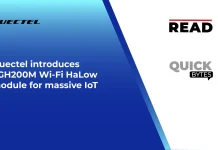Leap Therapeutics, Inc., a biotechnology company focused on developing targeted and immuno-oncology therapeutics, announced the Company will be presenting updated data from the DisTinGuish study, a Phase 2a clinical trial evaluating Leap’s anti-Dickkopf-1 (DKK1) antibody, DKN-01, in combination with tislelizumab, BeiGene’s anti-PD-1 antibody, in patients with gastric or gastroesophageal junction cancer (G/GEJ), at the American Society of Clinical Oncology (ASCO) Gastrointestinal (GI) Cancers Symposium being held on January 20-22, 2022.
Also Read: Neurimmune expands drug discovery collaboration with Ono Pharmaceutical
The Company will host a conference call with Dr. Samuel Klempner of Harvard Medical School and Massachusetts General Hospital on Friday, January 21, 2022 to discuss results from the study.
The latest results from Part A of the DisTinGuish study will be presented, representing first-line advanced G/GEJ patients treated with DKN-01 in combination with tislelizumab and chemotherapy. New data demonstrate compelling efficacy from this combination regimen, driven by enhanced clinical responses and survival benefit associated with high tumoral DKK1 expression that is independent of PD-L1 expression. Also to be presented are initial findings from the still-enrolling Part B of the clinical trial, studying DKN-01 and tislelizumab in second-line advanced G/GEJ patients with high tumoral DKK1 expression, showing the treatment is well tolerated with encouraging objective responses observed.
“The combination of DKN-01 with tislelizumab continues to demonstrate encouraging results in patients with gastric and gastroesophageal junction cancer, especially those in the DKK1-high subpopulation,” said Samuel Klempner, MD, Associate Professor at Harvard Medical School who leads the gastric and esophageal cancer program at Massachusetts General Hospital Cancer Center and is a principal investigator on the DisTinGuish study. “The updated front-line results are encouraging in a difficult to treat cohort of primarily PD-L1 low patients, who are less likely to benefit from anti-PD-1 therapy. Together with encouraging initial findings from Part B, where DKN-01 and tislelizumab are used as a chemo-free second-line treatment of DKK1 high-expressing tumors, these results continue to support the therapeutic potential of DKN-01 and warrant exploration in a randomized clinical trial in first-line gastric and gastroesophageal junction patients.”






